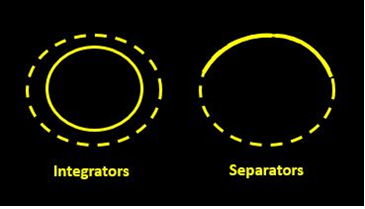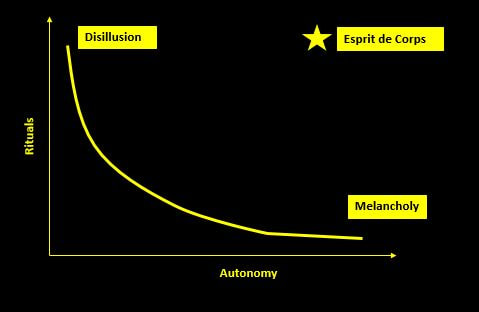|
Swinging between melancholy & disillusion #WFH has been trending continuously in the first half of this year. The pandemic suddenly moved everyone from offices to inside their homes. After the initial battle of organizing the technological support, people seem to have settled on an equilibrium. Employers love it – there are clear cost advantages. Employees love the freedom, not having to commute, and there’s more family time. But not everyone is happy. One outcome of WFH has been extra micromanaging. Old systems and processes that were put in place to build trust are broken. Managers cannot see their teams at work, there are no informal information channels, and no impromptu status update meetings. There is a sense of lost control. In a survey we recently conducted with a diverse pool of middle-level employees, almost 50% of them said that they are experiencing increased micromanaging in the last couple of months. As one employee said: “I am logged into my office systems 24X7. If team mates or your manager don’t find you online, they assume you are not being serious. There’s a pressure to prove your value to the employer.” Many are reporting working more than their scheduled 8 hours. There’s an anxiety factor especially with the looming job insecurity. And there is gadgets’ addiction. There are also unstated organizational expectations. As one manager out it: “Managing employees is getting difficult. We’re now using office 365 analytics on employees – calendar invites, number of meetings, free time, email sent - as a way to check on their WFH activities.” On the other hand, not all employees could handle their new-found autonomy. Ellen Kossek described people as separators or as integrators. Separators prefer to have clear time boundaries between work and non-work lives. No work once out of office. No home-related activity once at work. Integrators, on the other hand, prefer to blur the boundaries between work and non-work and are 'always on'. Can be thinking of work ideas while on family dinner. And could be booking their kids' doctor appointment while in office. Traditional 9am-5pm offices have created a species of separators. The sudden WFH created angst and melancholy in these separators. Their schedules and routines were disrupted. They found themselves working for hours from their bed in their pyjamas. They began to despise themselves for this. Moreover, in general, autonomy can be misunderstood by managers for absolving oneself of their duty to mentor and support. As one employee said, “autonomy has also had an unintended adverse effect on the level of feedback and support provided by my current manager.” To bring some control, managers quickly resorted to re-establishing some kind of work rituals. Rituals typically help bring structure and rhythm. In offices, workdays began with entering the office with good mornings and ended with saying good-byes to colleagues. Regular team meetings and spontaneous exchange over coffee chats helped create and maintain bonds. Teams have tried to replicate the same experience with virtual work. There are daily check-ins, virtual coffee chats, and Friday afternoon drinks. However, if rituals are seen as forced or just another item on the to-do list, it can lead to disillusioned employees. Rituals can then quickly lose their value. WFH is here to stay even after the pandemic is over. Companies need to find new ways of building trust and cohesion. Micromanaging is not a solution. Unchecked autonomy can lead to melancholy. Work rituals can feel forced and cause disillusionment. A fine cultivation of freedom and oneness will be key for successful cultural transformations under the new normal. How do we cultivate the Esprit de corps in this new future of WFH? That is the next big challenge.
0 Comments
Leave a Reply. |
AuthorDr. Kriti Jain Archives
August 2020
Categories |


 RSS Feed
RSS Feed
